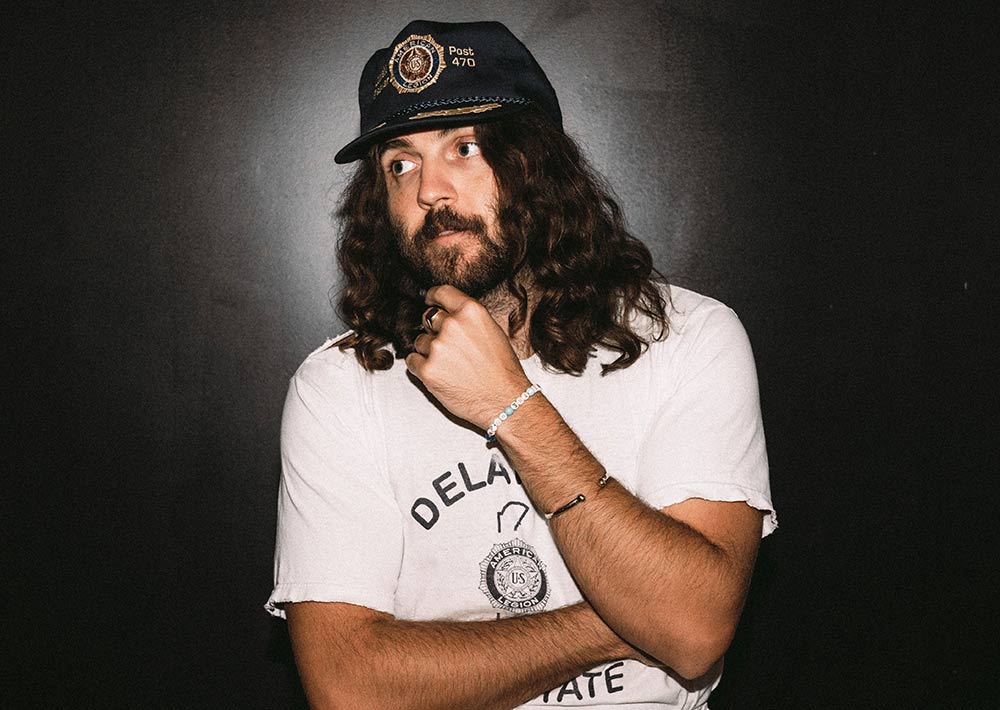
Hazlett: “You can’t disrespect the writing gods when they give you some sort of creative flow.”
The rising Australian indie-folk star shares how late beginnings, creative flow, and personal honesty shaped his introspective, vulnerable new album
Singing didn’t come to Hazlett until 26, later than most, but in just a few short years he’s become one of indie-folk’s most listened to voices, touring across the US and Europe. Originally from Australia and now based in Sweden, his cinematic folk sound reflects his introspective style. First gaining attention with debut album 2023’s Bloom Mountain and 2024’s Goodbye To The Valley Low EP, now comes latest album last night you said you missed me.
The album presents what he describes as his most vulnerable work to date; no longer singing softly or relying on metaphors to hide behind. Across 10 tracks, he blends classic acoustic sounds with a DIY production vibe, writing about distance, yearning, and hope. The single Doing My Best, which quickly earned millions of listens, offered an early glimpse into the album’s emotional weight. Serving as the album’s centre, what Hazlett calls his “sun song,” it’s the track around which the rest of the record revolves.
In our conversation, Hazlett reflects on writing the album, including Doing My Best, how his songwriting has evolved, and how setting hard deadlines help him to finish bodies of work. He also shares how moving to Sweden – and connecting with his co-writer and producer Freddy Alexander has shaped his sound.
Hazlett Live Dates and Tickets
First off, you’re Australian, but you’re based in Sweden. How has your time in Sweden impacted your songwriting and the overall sound of last night you said you missed me?
“I think quite a lot. The guy who produces everything, Freddy [Alexander/Fredrik Häggstam], comes from that Scandinavian clean pop sound. He’s done a lot of that and he’s done all different kinds of music, but I’m trying to make everything sound very DIY, because I’m not that skilled when it comes to that stuff. It’s been this nice push and pull with him. He’ll want to clean up things and I’ll be like, ‘No, that sounds too nice. Let’s make it sound bad.’
“We have this nice dynamic of push and pull. If I stayed in Australia and was left to my own devices, I might end up having more of a cliché sound. I would have done exactly what I had been doing. So, it’s nice having someone as a collaborator.
“Environmentally speaking, Sweden’s been great, because I got to experience the seasons for the first time. Australia’s just different degrees of summer, whereas now I get to fall and the cold winters in Sweden – sun up at 10am and down at 3pm – so that’s an adjustment. It’s probably made for more depressing music, but it’s also made for a bigger spectrum of stuff.”
How did you first get your songwriting noticed by the Swedish music scene?
“I started singing really late; I was 26 when I started singing. I was playing in pubs at the time, so I wasn’t really focused on doing music. This guy who’s from New Zealand moved to Sweden and started a publishing company… I think his wife heard a song I did on YouTube and he rang me. He was like, ‘You didn’t tell me you could sing.’ I was like, ‘Oh, I can’t really. I actually just got tired from the pub that I played at because my songs were too sad.’ And he’s like, ‘You should come up. I know a lot of producers in Sweden. You should work for a songwriting pub up here.’ I said no to him for about three months and then eventually, I was like, ‘Okay, let’s do it.’”
You mentioned your co-writer, Freddy. How did you meet him and how has your cowriting relationship evolved?
“I went up to Sweden and Freddy was in a production/songwriting trio at the time. But he was the first person I met when I went up there for my artist thing. Instantly, I was like, ‘Oh, this is the guy.’ I called my publishing friend who helped me organise it and I was like, ‘Don’t worry about the other things – I just want to work with this guy.’ Now we’ve done every single song I’ve put out together for like six-going-on-seven years now.
“The album coming out took only a month because we have a lot of unspoken communications. It’s a lot more streamlined. We just do stuff more instinctively. We have a very seamless process. He’ll do things without me asking, I’ll change the way I’m singing without him asking.”

Hazlett: “If something feels forced or I’m trying too hard to write, I want to put it away and not touch it.”
How would you describe your songwriting process?
“I think, because I got into my artist project late, I almost didn’t have those formative years – sitting in my bedroom and just writing and keeping songs hidden. Everything I’ve written, I’ve basically put out. It’s been wearing my mistakes on the sleeve and trying to figure out what my process and my sound is.
“It’s fun and also a bit cringe looking back. But also, in the writing process now there’s a lot of ‘Oh, I can’t.’ If I get writer’s block, I’d be like, ‘Oh, maybe I can’t be a musician, because I can’t write for like three months.’ But I think the more and more I’ve gone through it, I’m more at peace with it. I have this thing called a ‘creative check-in’ where I try not to force anything anymore and I just wait for that moment. It’s nice being in touch with that feeling of knowing I’m in a writing mode and knowing when I’m not.”
How did you start putting the album together?
“I was actually yearning to take a bit of a break at the start this year, because there was a lot of touring last year. I picked up my guitar in January and there was nothing there. Then, a couple of days later, I picked it up and… usually in five minutes I can tell in my fingers or in my voice if things are all connecting at the right time, it just fell out while writing.
“I was really looking forward to taking a break. But the whole writer’s block thing, I’m always scared of it. I feel like you can’t disrespect the writing gods when they give you some sort of creative flow. I called Freddy and I was like, ‘We need to go record ASAP.’ I just sat there doing voice memos and then we got together at the studio on the West Coast in Sweden and finished it all.”
As it has connected well with audiences already, can you go through the songwriting process behind Doing My Best?
“Doing My Best was at a point where I was exhausted. I did two tours with sixty days on the road in the space of three months to end a year last year. I was like, ‘Okay, I can’t wait to go back to Australia and see my family.’ Then I got sick, so I was stuck in bed for my birthday, Christmas, and New Year. I was like, ‘Okay, I’m going to miss Christmas, but I’ll go back to Australia and see my family in early January.’ Then, when I picked up my guitar, Doing My Best fell out. I like when that happens, though, but also part of me really wanted a break.
“I guess that’s a part in the song, with the reference to my mum who always kind of checks up on me. I try to make sure that she doesn’t worry about me. A lot of that song is just this weird letting it out moment of like, ‘I am tired, but I’m also creatively inspired at the same time trying to find that weird balance. I miss my family, but I’m doing the right thing by staying busy and trying to make music happen.’
“I made a deal with myself early last year. As I’m getting older, I’m a bit nervous of the way this music thing might go. But trying to remind myself when an opportunity comes to just do all of them. For the next two years, let me just throw myself into every single thing that comes through, even if I’m tired, and see where this whole music thing can take me. Doing My Best is probably a reflection of that push and pull of being exhausted and energised of where I could go with music and creatively. It’s annoying that it’s also a daily catchphrase that I use and now I can’t use it as much because it’s like I’m just self-referencing my own music.”
Did you have a feeling Doing My Best would be as popular as it is?
“I don’t think anything I do is ever going to be popular. I’m always very surprised when people turn up to my concerts.”
After you release a song, how is your relationship with its popularity?
“I’m very self-deprecating. I don’t know if it’s an Australian thing, it probably is an Australian thing, but I have a bit of a complex where I feel like if I stop and enjoy, that it’s this feeling of taking my foot off the gas. I am very terrified to stop and smell the roses. I’m like, ‘I must keep moving the goalposts forward and set a new target straight away,’ which is probably a very bad way to live, but keeps me hungry at the same time. I can admit that stuff has done really well and stuff that I never dreamed of in the past couple of years.”
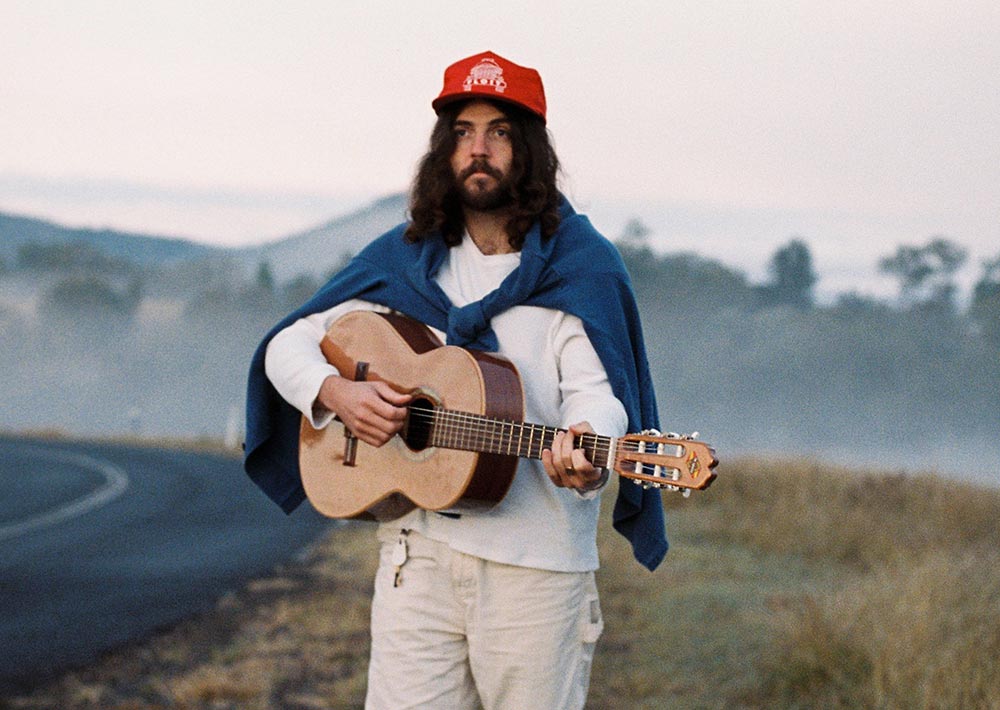
Hazlett: “I’m less concerned with what people want to hear from me, and more about what I need to say.”
Were there any other songs you considered for the album?
“On this album, there were definitely more than ten ideas floating around, but there weren’t more than ten finished songs. I don’t like the idea of having to cut things down. Even touring at the moment, trying to cut down the setlist is very stressful. I feel like it would be very stressful cutting down an album. For the most part, we find the songs that are finished and feel like they belong together. Then, some of the songs that are more of a struggle to write, I’ve learned to put on the back-burner. I have this weird thing: if something feels forced or I’m trying too hard to write, I want to put it away and not touch it.
“On the one hand, you should really work hard for the great songs, but I feel like they should come easy or finish themselves when they’re ready. Then like every album I’ve written, I look for what I call the ‘sun song.’ I think it’s the song on the album where everything else orbits around. For the first album, that was Please Don’t Be, for the second album, that was Blame The Moon and then this album was definitely Doing My Best. That one sets the tone. Thematically and sonically, everything else can just draw from that song.”
Going off of that, when did you know the album was finished?
“Freddy and I spent like two years doing the Bloom Mountain album. We said to ourselves, never again. We started giving ourselves hard deadlines for no reason, because I think you can get stuck spinning your wheels – adjusting sounds and wanting to rewrite things here and there. I like the idea of an album being like a snapshot, a period in time, instead of being a long, exposed thing – unless that’s your intention, of course. For me, I try to write within a small period of time.
“We said, ‘Hard deadline. This is the time we have on the West Coast to write. If it’s not written by the end of that week, it’s not ending up on the album.’ That makes it easier to make decisions or stick to your guns. We knew the album was finished because we literally ran out of time. We had to go home.”
One of the major themes and sounds in the album is nostalgia. I’m curious, how did you feel like you were able to capture that?
“I’m like a chronic nostalgist. I think nostalgia gets a bit of a bad rap. My music gets labelled ‘sad boy music’ all the time. I don’t mind that – I think it’s funny – but for me, all the songs are things I’ve worked through and they usually have a silver lining at the end. I guess that gives them a looking-back feel. Sometimes nostalgia feels sad to people. To me, it’s more of a pondering, a pause, that feeling. I’m just very introspective, always wanting to solve something, which naturally lends itself to looking back and trying to figure things out.”
Talking about looking back, but how has your songwriting changed since your earlier work? What lessons have you learned along the way?
“I don’t know if it’s improved, but I think it’s evolved. Early on, I used to get very anxious. I’d be lying on the ground in a ball stressing out before going on stage. I just thought, ‘This isn’t sustainable, I can’t feel like this every night.’ Songwriting was similar, I was trying to impress people, writing songs to make others like them instead of focusing on what I wanted to express. So, I made a decision: I need to not write to impress, I need to write to connect with myself first. When I do that, weirdly, other people connect more strongly too. So now, my songwriting has changed in the sense that I’m less concerned with what people want to hear from me, and more about what I need to say. The rest kind of takes care of itself.”
Are you writing while on tour at all?
“No. Sometimes, if I’m doing a soundcheck, I might pick up the guitar and write something, but for the most part, my brain is locked into tour mode. I don’t necessarily know how people write on tour. Maybe if you’re a huge artist with a massive crew and a whole studio set up, you can. But for me, I’m there with the guys unrolling cables and setting up my amps. There’s not much room for the creative brain to kick in.”
Is there anything you want people to take away from the album, or are you going in expectation-free?
“I don’t know if I want people to take away something specific. I’m more interested in how people perceive it. But this album is a lot more band-sounding, and it’s a lot more me; not hiding so much. Before, I used to sing softly, use a lot of metaphors, sometimes to hide what I was really saying. I love creative writing, but I think I leaned on it too much to cover myself. This time, I wanted to be more literal, more confident, even if it feels vulnerable. On some songs, I’m yelling at the top of my range, which I’ve never really done before. It’s different, but I’m interested to see what people think of it.”
Hazlett’s new album last night you said you missed me is out now and he’ll be touring the UK/EU in November and December. Music and live dates/tickets can be found at thisishazlett.com
Hazlett Live Dates and Tickets


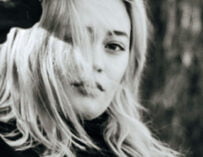
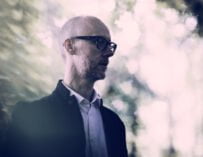

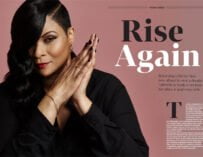

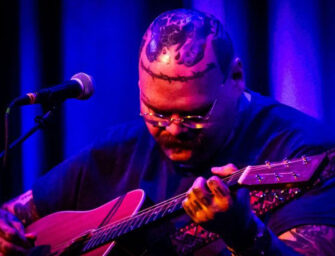
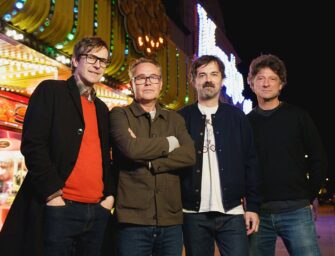

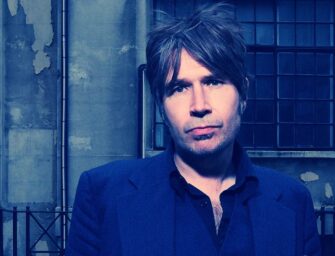























Related Articles